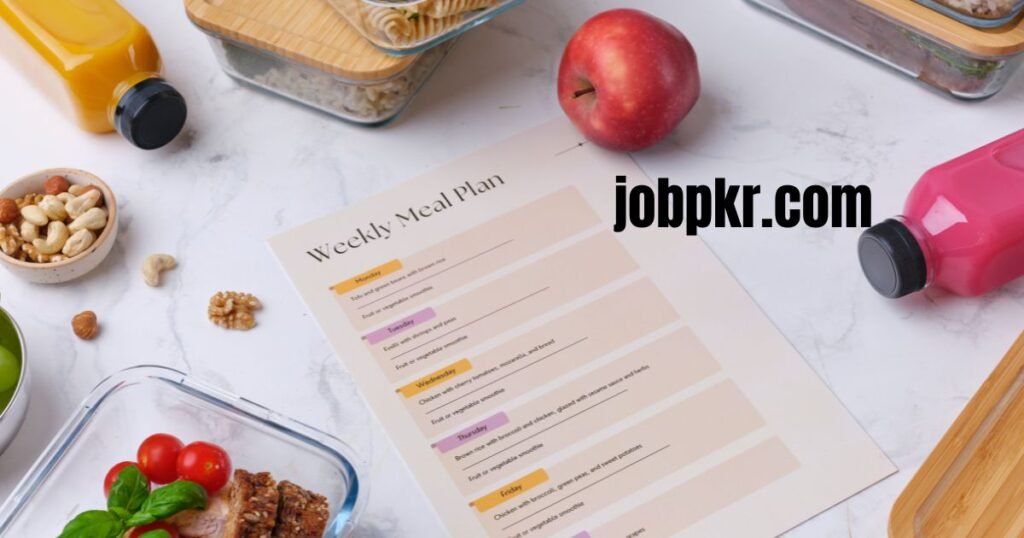Losing excess body fat and maintaining a healthy weight doesn’t require following complicated or overly restrictive diets. The simplest and most sustainable approach is often the most effective. Focusing on a few foundational eating strategies can set you up for safe, consistent fat loss over time.
Eat in a Calorie Deficit
To reduce stored body fat, you need to be in a calorie deficit, meaning you consume fewer calories than you burn each day. A reasonable deficit is about 500 calories below your maintenance level. This results in about 1 pound of fat loss per week on average. Track your calories to ensure you stay in a deficit.
Increase Protein Intake
Protein is the macronutrient most effective at boosting satiety. Getting enough makes it easier to stay satisfied while eating fewer calories. Aim for 0.7-1 gram of protein per pound of body weight daily from sources like meat, fish, eggs, dairy, and legumes.
Limit Added Sugars and Refined Carbs
Foods high in added sugars and refined grains like bread, pasta, and baked goods tend to be calorie-dense yet nutritionally poor. Limiting these carbs controls calories and reduces blood sugar spikes that spur hunger and fat storage.

Eat More Non-Starchy Veggies
Non-starchy vegetables like leafy greens, broccoli, cauliflower, and peppers are low in calories while providing bulk that fills you up. Getting 2-3 cups daily helps satisfy hunger for fewer calories so you more easily maintain a calorie deficit.
Increase Healthy Fat Intake
Although high in calories, unsaturated fats from foods like avocado, nuts, seeds, olive oil and fatty fish provide nutrients and satiation. Healthy fats even boost fat burning and stabilize blood sugar when eaten as part of an overall high protein, low carb diet.
Stay Hydrated with Water
Drinking water, especially before meals, throughout the day improves fullness and reduces total calories consumed. Carry a water bottle as a reminder. Aim for 64 ounces (about 2 liters) daily as a minimum. Adding lemon can boost flavor and increase hydration.
Monitor and Reduce Alcohol
Alcohol is high in empty calories and lowers inhibitions around food, often leading to overeating. Limit alcohol to 1-2 drinks max a few days per week. Avoid drinking daily during fat loss phases. Record alcohol to keep calories in check.
Weigh and Measure Portions
Use measuring cups, spoons, and a food scale to accurately determine serving sizes rather than guessing. This prevents “portion creep” that sabotages your deficit. Weighing and measuring keeps calories controlled.
Cook Meals at Home
Preparing meals at home makes it easier to control ingredients and portions compared to eating out. Fill your kitchen with healthy proteins, produce, whole grains, herbs and spices. Meal prep on weekends to have grab-and-go options ready all week.
Read More What Would be an Ideal Easy Diet Plan?
Allow Occasional Indulgences
Allowing a small indulgence once or twice a week prevents feelings of deprivation that lead to bingeing. Savor a special treat mindfully then get right back on track with your healthy eating. Just account for treats in your daily calories.
5 FAQs about Simple Diet Plans
How fast will I lose fat following these basic tips?
Following an approximately 500-calorie daily deficit, you can expect to lose about 1 pound of fat per week on average, or 4-5 pounds monthly. This equals over 40 pounds in a year!
What if I hit a fat loss plateau?
Plateaus are normal. Try adding more protein, cutting back carbs further or creating a bigger calorie deficit temporarily. Check for inaccuracies in tracking calories. Rev up workouts or add HIIT. Consider a “diet break” at maintenance calories.
Can I lose fat without counting calories?
It’s possible, especially for larger deficits, but measuring portions and tracking calories ensures you reliably maintain the needed deficit each day. Weighing food keeps you accountable.
Doesn’t cutting carbs cause loss of energy or “brain fog”?
This can happen initially when transitioning to low carb. Staying properly hydrated, getting enough healthy fats, eating veggies, and ensuring sufficient protein can prevent fogginess. Your body adapts over time.
How can I make this sustainable long term?
Focus on overall healthy eating and lifestyle habits 80% of the time, allowing a small indulgence now and then. Take periodic diet breaks at maintenance calories. Ensure sufficient nutrients, sleep, and recovery. Stay patient – it’s a gradual process!
Conclusion
Simplifying your approach sets you up for sustainable fat loss results compared to extreme diets. Focus on consuming adequate protein, limiting refined carbs and added sugars, eating plenty of non-starchy veggies, monitoring portions and calories, staying hydrated and controlling alcohol. Prepare more meals at home using whole food ingredients. Allow occasional sensible indulgences. With consistency over time, these basic strategies enable safe, maintainable fat reduction.

